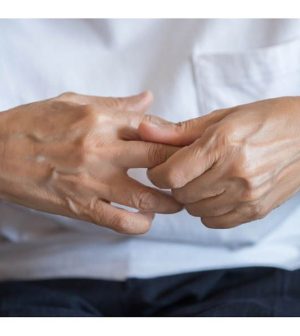- The Best Time of Day to Drink Bone Broth to Maximize Health Benefits
- 8 Ways to Increase Dopamine Naturally
- 7 Best Breads for Maintaining Stable Blood Sugar
- Gelatin vs. Collagen: Which is Best for Skin, Nails, and Joints?
- The Long-Term Effects of Daily Turmeric Supplements on Liver Health
- Could Your Grocery Store Meat Be Causing Recurring UTIs?
- Are You Making This Expensive Thermostat Error This Winter?
- Recognizing the Signs of Hypothyroidism
- 10 Strategies to Overcome Insomnia
- Could Artificial Sweeteners Be Aging the Brain Faster?
Good Stroke Recovery May Depend on Your ZIP Code: Study

Stroke recovery tends to be worse among Americans in poorer neighborhoods than those in wealthier neighborhoods, a new study finds.
“People in less advantaged neighborhoods were more likely to have more disability, lower quality of life and more symptoms of depression than people in more advantaged neighborhoods,” said study author Lynda Lisabeth, from the University of Michigan in Ann Arbor.
The study included 776 stroke survivors in Nueces County, Texas, who were assessed three months after their stroke.
The study participants were asked about their ability to perform daily living activities, such as bathing, dressing and cooking, and given scores ranging from 0 to 4, with lower scores indicating better functioning.
Those in the wealthiest neighborhoods had average scores of 1.7, compared with average scores of 2.1 for those in the poorest neighborhoods, indicating less independence, the study authors said.
After adjusting for factors such as age, number of other medical conditions and pre-stroke level of functioning, the researchers concluded that living in more affluent neighborhoods was associated with 0.27 better scores among those with moderate to severe strokes.
Symptoms of depression were assessed using scores from 0 to 24, with lower scores meaning fewer symptoms. People in the wealthiest neighborhoods had average scores of 13.9, compared to 16.2 for people in the poorest neighborhoods.
After adjusting for age, other medical conditions and pre-stroke functioning, living in higher compared to lower socioeconomic neighborhoods was associated with 1.77 lower scores among those with moderate to severe strokes, the investigators found.
People in poorer neighborhoods also had worse scores on the quality-of-life assessment, according to the report published online April 28 in the journal Neurology.
“Reasons for this could include less access to public spaces in the neighborhood, more noise pollution, less access to support services and lower levels of perceived safety,” Lisabeth said in a journal news release.
“More research is needed to identify which factors are driving this association, as well as initiatives aimed at improving health and quality of life for people who have the dual burden of experiencing a moderate to severe stroke and living in a socioeconomically deprived neighborhood,” she added.
More information
The American Stroke Association has more on life after a stroke.
SOURCE: Neurology, news release, April 28, 2021
Source: HealthDay
Copyright © 2026 HealthDay. All rights reserved.










